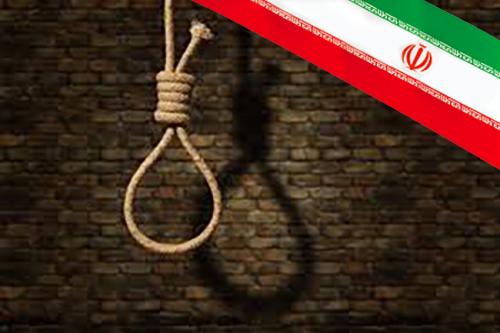01 January 1999 :
A few weeks ago, I announced to the nation that it was necessary for the petitions by the condemned prisoners convicted by our courts for their roles in the attempted coup dīetat of 1997 to be referred to the Committee on the Prerogative of Mercy and that because of the public interest which those petitions had generated, I had in accordance with Article 60 of the Constitution arranged that I would chair the meeting of the Committee when it considered the petitions.The Committee met on 17th February 2004, discussed and pondered on these petitions and finally rendered their advice to me. Ten days later, I decided to commute the death sentences of the 44 condemned soldiers to jail terms ranging from 10 to 20 years.
The exercise of the prerogative of mercy is vested in the President and although it is true that advice was given to me, I take direct responsibility for that decision. The soldiers committed a serious crime by attempting to remove a government using unconstitutional means, but I saw no need for revenge by hanging them. You cannot be slaughtering people like chickens.
In my consideration of the petitions I regret that I had to give my long-held opinion on the issue of capital punishment notwithstanding the fact that this matter will become the subject of recommendations by the Constitution Review Commission. In fact, whether to retain capital punishment on our statutes is a matter which has been referred to the CRC as one of the terms of reference.
It is important that I should give reasons for my consideration.
Capital punishment or death penalty in Zambia is under our laws reserved for very serious offences. These being murder, aggravated robbery and treason (hereinafter called "capital offences"). Proponents of its retention argue that perpetrators of these offences have no concern for the sanctity of life and as such, society should not show any mercy to such perpetrators.
Murder is the deliberate killing of any person "with malice aforethought". A robber knows full well that one intrinsic consequence of a robbery is death of somebody since he aims to seize property by force or violence and if he meets resistance or in order to instil fear, he will kill or at any rate aim to cause bodily harm.
Similarly those who seek to remove a lawfully elected or constituted government are not concerned whether their acts will result in death or whether they will cause serious bodily harm or damage to property. It is said that such callous acts deserve all the rigours of retribution.
For all these capital offences, proponents argue that the death penalty serves to deter other would be perpetrators of these crimes from committing them.
In considering whether there is any justification for capital punishment, we must first restate the aims and purposes of punishment in our criminal justice system.
I understand punishment to serve the following intendments:
1. deterrence both to the convict and to the other would be perpetrators of the offence in question;
2. reform and rehabilitation - to punish you so that you learn that what you did was wrong and so that you are given another chance to lead a good or decent life;
3. to inflict pain and suffering so that the purposes of (1) and (2) above are fulfilled;
4. incapacitation i.e. to effectively make it impossible for you to commit the offence again, and to ensure that the purposes of (5) below are fulfilled and help to reduce or eliminate the commission of capital offences;
5. retribution i.e. society should do to you what you have done to another.
To what extent does the death penalty serve any of these aims and purposes? In regard to capital offences, canīt these aims and purposes be achieved by other forms of penalties?
In Zambia the death penalty is executed by "hanging until you are dead." Quite often people stay on the death row from conviction to execution for very prolonged periods of time, which in many cases could be as much as 20 years. During this time a prisoner on death row suffers stress, anxiety and trauma, not knowing when they are going to "kill" him!
Zambia has signed a number of international conventions which obligate state parties not to subject any person to "inhuman or degrading punishment." When our courts are obligated to pass death sentences, are we not thereby violating the covenant which restrains us not to subject any person to "inhuman or degrading punishment"?
How many of those who say we are not committing this violation will accept to be employed as hangmen? Worse still, how many of you would proudly discuss the number of people you tied nooses around their necks in any day and how they cried to you for mercy? Would you even dare to discuss this subject at dinner with your family?
Life is sacred.
Abolition of capital punishment or the death penalty can in my opinion be justified even from a Biblical point of view.
The first known and recorded murder is the murder by Cain, who killed his brother Abel. God as judge did not impose capital punishment on Cain but sentenced him to life imprisonment adding that whoever shall kill Cain shall be punished 7 times.
It is also to be noted that the sixth of the ten commandments that God gave to Moses states as follows: "thou shall not kill".
In Romans 12:9, it is written,
"Never try to get revenge, leave that my friends to Godīs anger as the scriptures say, "Vengeance is mine, I will pay them back," the Lord promises."
I am aware that some Christians and leaders of some churches are strong advocates of capital punishment. They base their support on some scriptures in the Old Testament. These scriptures teach the principle of an eye for an eye, tooth for tooth and so on. If this principle was followed to the letter, as Martin Luther King remarked:
"That old law of an eye for an eye leaves everybody blind. The time has come to do the right things."
It would be misleading to cite verses in the Bible, particularly from the Old Testament, out of context as representing Christian thinking. I ask the advocates of an "eye for an eye" principle to read the following scriptures, Exodus 21:1-11 and Deuteronomy15:12-15. Let them tell us if they support selling of oneīs s children as slaves, let them tell us if they support the practice of polygamy as being Biblical. These scriptures actually seem to support slavery and polygamy! Therefore, while the scriptures in Exodus 20:23-27 teach the principle of life for life, eye for eye, tooth for tooth, burn for burn, hand for hand, foot for foot, wound for wound, bruise for bruise, the scriptures in Mathew 5:38-39 teach us as follows:
"You have heard that it was said, eye for an eye, but now I tell you do not take revenge on someone who offends you. If any one slaps you on the right cheek, let them slap your left cheek too."
The conviction of an accused may indeed be the subject of genuine mistake. In the course of the trial of a capital offence, a mistake could have been committed which had it not been made could have resulted in an acquittal or in a conviction for a lesser offence. Once the convict has been executed and a mistake is discovered afterwards, it is impossible for society to sufficiently compensate for that error.
Even for those proponents who justify death for vengeance purposes, my submission is that, it is not for man to perpetrate vengeance. This should be preserved for God (see Romans 12:9). Those who oppose this argument will cite Romans 13:1-7, which provides that civil authorities are created as ministers of God and they mete out punishment on behalf of God, this may well be so, but when you read that scripture, it does not talk of punishment which man can give as involving the taking of life. To the contrary you will see that when Jesus was here on earth, He forgave those who did him wrong. Thus we see Jesus replacing the ear of Malchus, a Pharisee whose ear was cut off by Peter, one of the disciples of Jesus (John 18:10, 11)
"10. Then Simon Peter, having a sword, drew it, and struck the high priestīs servant, and cut off his right ear; and the servantīs name was Malchus. 11. Jesus therefore said to Peter, Put up thy sword into the sheath. Shall I not drink the cup which my Father hath given me?"
I feel so strongly about the issue of capital punishment that I have informed the Prerogative of Mercy Committee that as long as I remain President, I shall not execute a death warrant. That is if in the meanwhile we should retain this form of punishment on our statutes after the Constitution has been amended. I do not want to be the chief hanger.
Levy P. Mwanawasa SC,
President of the Republic of Zambia
March 2004








